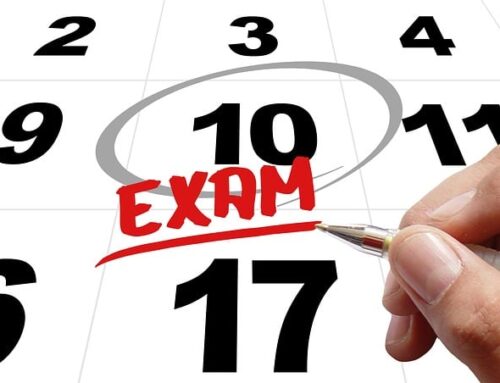Exams can make students feel anxious, especially when they’ve worked hard to prepare. But even when you’ve put in lots of effort to study, sometimes things don’t go as planned, and you may not get the results you were hoping for. Don’t worry; you’re not alone. Many students experience this, and there are some common reasons why it happens.
In this article, we’ll explore why well-prepared students might fail exams and provide some easy-to-understand solutions to help you perform better.
1. Test Anxiety:
Exams can be scary, and that fear can affect how well you do. It’s called test anxiety. Even if you’ve studied a lot, feeling nervous during the exam can make you forget things. To tackle this, try relaxation techniques like deep breathing or mindfulness exercises before the exam. It can help you stay calm and focused.
2. Time Trouble:
Managing time during the exam can be tricky. Sometimes, students run out of time and can’t finish all the questions. To solve this, keep an eye on the clock and allocate a specific time to each question. Don’t get stuck on one question for too long. Move on if you’re having trouble and come back to it later.
3. Tricky Questions:
Some exam questions can be confusing or tricky. You might understand the material, but the way the question is asked can make it hard to answer. It’s important to read the question carefully. If you don’t understand, ask the teacher for clarification. There’s no harm in seeking help.
4. Lack of Practice:
Studying the material is essential, but practicing with sample questions or problems is just as crucial. It helps you apply what you’ve learned. If you only read and don’t practice, you might not know how to use the knowledge during the exam. So, always practice with questions similar to what you expect on the test.
5. Mental Blocks:
Ever had a “brain freeze” during an exam, where you forget things you know well? Stress and anxiety can cause this. To overcome it, make sure to get a good night’s sleep before the exam and stay hydrated. A healthy body and mind work better.
6. Health Matters:
If you’re not feeling well on the day of the exam, it can affect your performance. It might be because of a lack of sleep, illness, or personal problems. Take care of yourself. Get enough rest, eat well, and reach out for support if you’re not feeling your best.
7. Overconfidence:
Being confident is good, but being overconfident can lead to mistakes. You might think you know everything, so you skip reviewing some topics. But the exam might have questions on those very topics you ignored. Stay humble and review all the material.
8. Exam Strategies:
Exams require strategies. You need to know how to approach different types of questions, manage your time, and choose which questions to answer first. Not having good strategies can affect your results. Learn and practice effective strategies to boost your performance.
9. External Distractions:
If the exam room is noisy or uncomfortable, it can distract you. Try to stay focused and bring earplugs if needed. Find a comfortable seat and avoid unnecessary distractions during the exam.
10. Format Matters:
Different exams have different formats. Some have multiple-choice questions, while others require essays. If you don’t adapt to the specific format of the test, you might struggle. Be familiar with the type of questions you’ll face and practice accordingly.
11. Careless Errors:
Sometimes, you know the answer, but you make a simple mistake. You misread the question, miscalculate, or have a typo in your answer. Be extra careful and double-check your work to avoid these errors.
12. Missing Parts:
It’s easy to focus on the parts you like and ignore others. But exams cover the whole syllabus. If you skip some topics while studying, you might be in trouble if those topics appear in the exam. Study everything, even if it’s not your favorite.
13. Lack of Feedback:
Studying alone without getting feedback can be risky. You might think you understand something, but you could be mistaken. Get feedback from teachers or peers. It’s a great way to discover your weak spots and improve.
14. Stress and Pressure:
Exams can create a lot of pressure. Some students perform better when there’s no pressure, but stress can cause mistakes. Try to stay relaxed by practicing relaxation techniques and remind yourself that it’s just a test, not a life-or-death situation.
15. Unexpected Problems:
Life is full of surprises, and sometimes they happen during exams. A family emergency, technical issues during online exams, or other unexpected problems can disrupt your performance. If it happens, inform your teacher or exam proctor and seek a solution.
In conclusion, even when you’ve prepared well, various factors can affect your exam performance. But don’t be discouraged. By understanding these common reasons and implementing simple solutions, you can improve your exam results. Remember, exams are just one way to assess your knowledge, and they don’t define your worth or potential. Keep learning, stay positive, and keep working toward your goals. You’ve got this!



Leave A Comment
You must be logged in to post a comment.